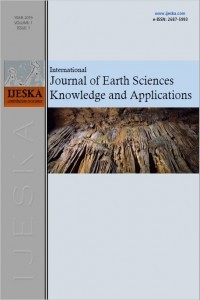
International Journal of Earth Sciences Knowledge and Applications
Yazarlar: ["Mustafa Hakan OZYURTKAN", "Mehmet Serif ARSLAN", "Yildiray PALABIYIK", "Adil OZDEMİR", "Yasin ERDOGAN"]
Konular:-
Anahtar Kelimeler:Borax,Boron,Water-based drilling fluid additive,High-temperature,Clay contamination
Özet: To be able to provide stability for fresh water-based drilling fluids systems is still a considerable controversy in high-temperature and high clay-bearing environments. It is a well-known fact that fresh water-based drilling fluids are losing their stability in high-temperature environments. The viscosity and the water loss of these muds are increasing. It is even getting worse coupling with shale contamination. In order to get over these problems, different types of polymers are used as additives, which in the end might cause additional drilling-related issues and also an additional cost to overall drilling operations. The usage of borax as an additive is not that common in the drilling industry. Its effect on rheological and water loss properties is not very well-defined, especially at high temperatures and in a contaminated environment. The main goal of this study is to test borax as a fresh water-based drilling fluid additive under elevated temperature and contamination conditions. The variation of rheological properties is investigated with a conventional viscometer. The water loss properties are examined using a high-temperature, high-pressure (HTHP) water loss testing apparatus. Numerous tests were performed at temperature conditions ranging from room temperature to 200 0F (93 °C) and a filtration pressure of 100 psi (0.7 MPa). The experiments were also repeated using OCMA (Oil Company Materials Association) clay to mimic shale contamination. The experiments have resulted in acceptable rheological properties and filtration rates for the fresh water-based mud at high temperatures. The experimental results promise that properly formulated fresh water-based drilling fluids with borax might be a potential choice in wells expecting high temperature and shale contamination besides their low-cost advantages.